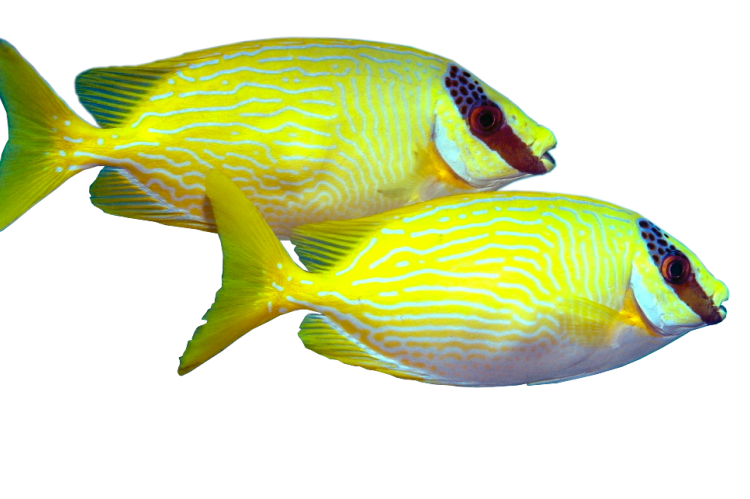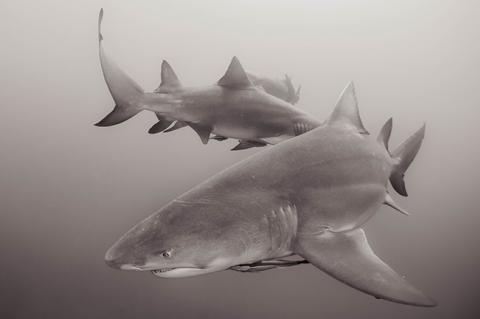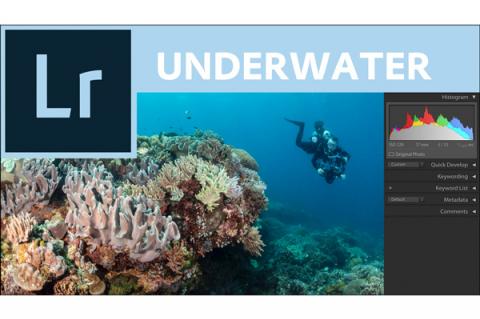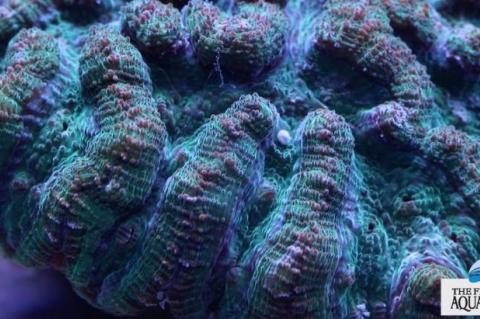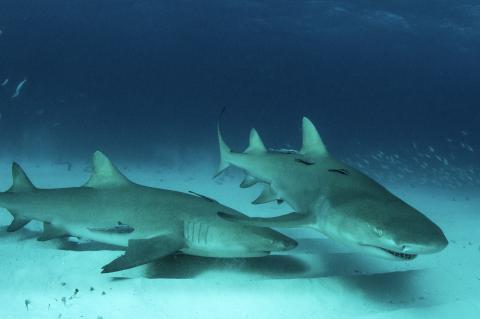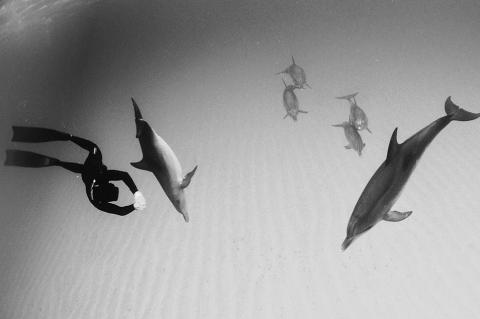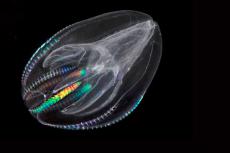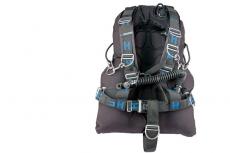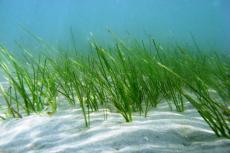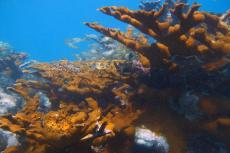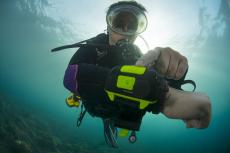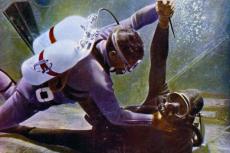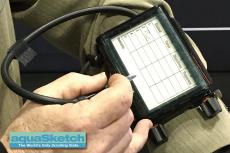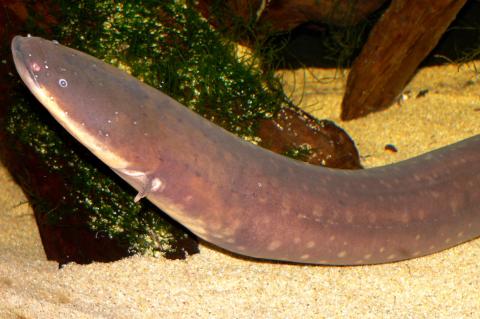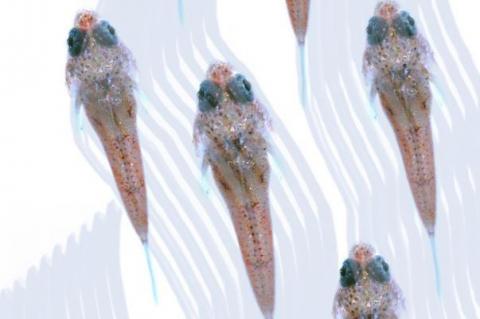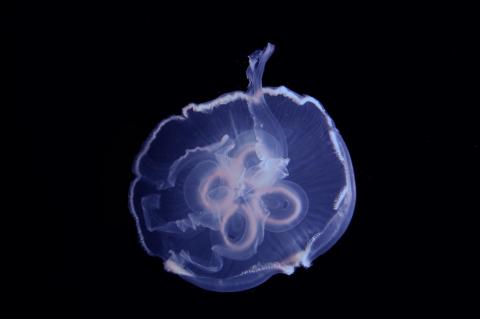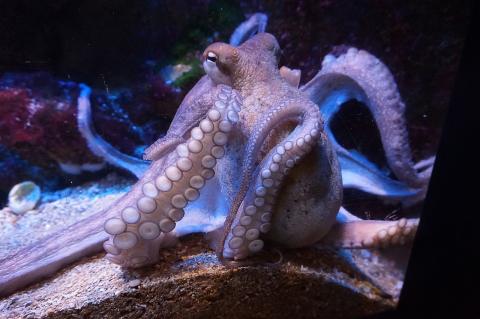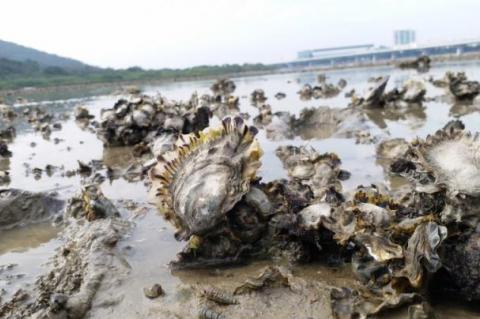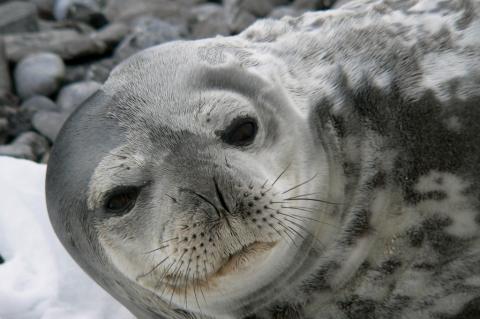Fishes look out for their buddies
Fishes, which are commonly considered to be cold, unsocial, and unintelligent, are capable of negotiating reciprocal cooperative systems, Australian researchers find.
In pairs of coral reef rabbitfishes (f. Siganidae), one fish frequently assumes an upright vigilance position in the water column, while the partner forages in small crevices in the reef substratum. Both behaviours are strongly coordinated and partners regularly alternate their positions, resulting in a balanced distribution of foraging activity.
Smarter than we thought
Reciprocity is frequently assumed to require complex cognitive abilities it has therefore been argued that such behaviour may be restricted to animals that can meet these demands. The case at hand indicates presence of direct reciprocity in teleost fishes.
Compared to solitary individuals, fishes in pairs exhibit longer vigilance bouts, suggesting that the help provided to the partner is costly. In turn, fishes in pairs take more consecutive bites and penetrate deeper into crevices than solitary individuals, suggesting that the safety provided by a vigilant partner may outweigh initial costs by increasing foraging efficiency.
“We found that rabbitfish pairs coordinate their vigilance activity quite strictly, thereby providing safety for their foraging partner,” says Dr Simon Brandl from the ARC Centre of Excellence for Coral Reef Studies. “By showing that fishes, which are commonly considered to be cold, unsocial, and unintelligent, are capable of negotiating reciprocal cooperative systems, we provide evidence that cooperation may not be as exclusive as previously assumed.”
Our findings should further ignite efforts to understand fishes as highly developed organisms with complex social behaviours. This may also require a shift in how we study and ethically treat fishes.
Prof. David Bellwood, Centre of Excellence for Coral Reef Studies.


